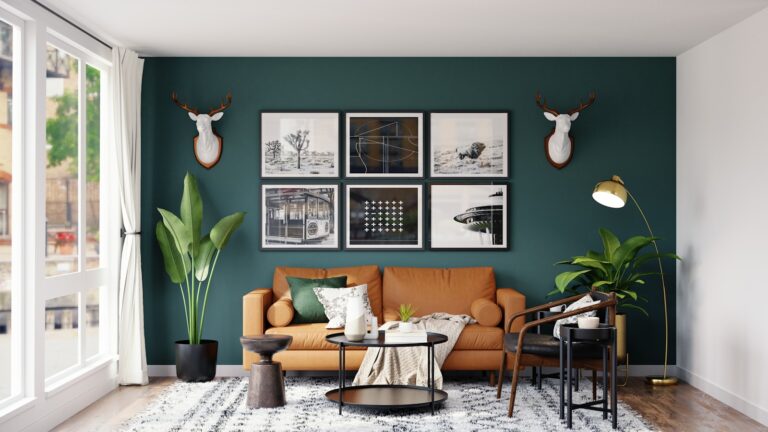Getting a solid night’s sleep sometimes feels out of reach, especially if you find yourself wide awake at 2 a.m. A lot of us have trouble drifting off or staying asleep. But honestly, sticking to some simple nighttime habits can really boost your sleep quality and help you wake up more refreshed.
You don’t need fancy gadgets or a complicated routine. Just a few tweaks to your evenings can make a world of difference. Things like keeping a regular bedtime and building a calming pre-sleep ritual actually work with your natural sleep cycles, not against them.
Most sleep experts will tell you: what you do before bed is crucial. Even small changes to your routine can set you up for better, deeper sleep. These habits are proven to lower stress, quiet your mind, and let your body know it’s time to wind down.
Key Takeaways
- A regular bedtime routine tells your body it’s time to sleep and helps you sleep more soundly.
- The mood of your evening environment matters—dim the lights and try to cut out screens before bed.
- Simple things like reading, gentle stretching, or a warm bath can help you transition to sleep mode.
Building An Effective Bedtime Routine
A good bedtime routine tells your brain it’s time to wind down. Doing the same relaxing things before bed can make it easier to fall asleep and wake up feeling better.
Creating Consistent Sleep Schedules
Going to bed and waking up at the same time every day (yes, even on weekends) is one of the best ways to improve your sleep. Your body likes patterns.
When you stick to regular sleep hours, falling asleep and waking up gets easier. Most adults need about 7-9 hours a night.
You might want to try a sleep app or tracker—they can help you see your patterns and stick to your schedule.
If you need to shift your sleep time, don’t do it all at once. Move your bedtime by 15-30 minutes each day until you hit your goal.
Relaxation Techniques For Nighttime
Adding some relaxation into your evenings can make sleep come easier. Here are a few to try:
Deep breathing:
- 4-7-8 method: breathe in for 4, hold for 7, out for 8.
- Box breathing: inhale, hold, exhale, pause—all for equal counts.
Gentle stretching works out tension, especially in your neck, shoulders, and back.
Reading a real book (not on your phone) for 15-20 minutes can help you unplug and unwind. Pick something enjoyable but not too thrilling.
Meditation or mindfulness before bed can calm your racing thoughts and lower anxiety that keeps you up.
Optimizing Your Bedtime Environment
Your bedroom should feel like a sleep sanctuary.
Keep it cool—most people sleep best between 60-67°F (15-19°C). Blackout curtains help block out light, and a white noise machine can cover up annoying sounds.
Try to keep electronics out of the bedroom, or at least stop using them 30-60 minutes before bed. Blue light from screens can mess with your melatonin, which is the hormone that helps you get sleepy.
Don’t forget your mattress and pillows. If they’re old or uncomfortable, it might be time for an upgrade. The “right” firmness is pretty personal—go with what feels best for your body.
A 60-minute wind-down could look like dimming the lights, doing some light stretching, reading, and finishing your night routine before turning out the lights. Over time, this pattern helps your brain get the hint: it’s sleep time.
Science-Backed Nighttime Habits For Restful Sleep
A regular bedtime routine helps your body learn when it’s time to sleep. Research backs up that certain habits can help you fall asleep faster and sleep more deeply.
Limiting Screen Time And Blue Light Exposure
Phones, tablets, and TVs give off blue light that throws off your natural sleep-wake cycle by suppressing melatonin.
Try to put screens away at least an hour before bed. If you really need to use them, try:
- Night mode or blue light filters
- Blue light blocking glasses in the evening
- Dimming screen brightness
Most phones have settings to cut down on blue light at night. Making your bedroom a screen-free space can help your brain associate it with sleep, not scrolling.
Swap out nighttime scrolling for a book or some calming music.
Using Relaxation Methods Like Meditation And Deep Breathing
Relaxation techniques can lower stress and prep your mind for sleep. Even 5-10 minutes of meditation before bed can make a difference.
Here’s a simple breathing exercise:
- Inhale slowly through your nose for 4 counts
- Hold for 2 counts
- Exhale through your mouth for 6 counts
- Repeat 10 times
Guided meditation apps can be helpful, especially if you’re new to this. Body scan meditations—where you focus on relaxing each part of your body—are great for bedtime.
The more you practice, the easier it gets to relax and drift off.
Taking A Warm Bath Or Gentle Yoga Before Bed
A warm bath about 1-2 hours before bed can help you sleep better. When your body cools down after the bath, it mimics the natural drop in temperature that happens as you fall asleep.
Adding Epsom salts with magnesium might boost relaxation even more.
Gentle yoga poses to try before bed:
- Child’s pose
- Legs up the wall
- Supine twist
- Easy forward folds
Hold each pose for several slow breaths—don’t worry about flexibility, just focus on relaxing. Even 10 minutes of stretching can help release the day’s tension.
Pair your bath or yoga with a bit of lavender or chamomile essential oil if you like—lots of people swear by it for relaxation.
Avoiding Caffeine And Alcohol In The Evening
Caffeine can stick around in your system for 5-6 hours. Studies show that drinking it even 6 hours before bed can cut your sleep by an hour.
Try to cut off caffeine by:
- Noon if you’re sensitive
- 2pm for most folks
Watch out for hidden caffeine in tea (even green tea), chocolate, some meds, and energy drinks.
Alcohol might make you sleepy at first, but it disrupts your sleep later in the night—especially the deep, restorative REM stage. Instead of a nightcap, try herbal tea like chamomile for a relaxing alternative.
Optimizing Your Sleep Environment
Your bedroom setup has a big impact on how well you sleep. A few tweaks can make it much easier to fall—and stay—asleep.
Setting The Right Room Temperature
Most people sleep best in a cool room—somewhere between 60-67°F (15-19°C). This cooler temp helps your body naturally drop its temperature, which is part of falling asleep.
If your room’s too hot or cold, you’ll probably toss and turn. In summer, try fans or cooling mattress toppers. In winter, layer your blankets instead of cranking up the heat.
A few quick tips:
- Use a thermostat to set a cooler temp at night
- Wear socks if your feet get chilly
- Pick breathable sheets like cotton or bamboo
- Take a warm shower before bed to help your body cool down after
Choosing Comfortable Mattresses And Sleepwear
A good mattress is key for quality sleep. It should fit your sleep style and support your body. Most mattresses last 7-10 years before they start to break down.
When looking for a mattress, think about:
- How you sleep (side, back, stomach)
- What firmness feels good
- If you share a bed, look for motion isolation
- Materials that help regulate temperature
What you wear to bed matters too. Natural-fiber bedding like cotton lets your skin breathe. Loose-fitting pajamas won’t cut off circulation or make you too hot.
Synthetic fabrics can trap heat and sweat. Some people find they sleep better with cool sheets and warm socks.
Managing Light And Noise For Restful Sleep
Light has a huge effect on your sleep cycle. Blue light from screens can make it harder to fall asleep, so turn off electronics at least half an hour before bed.
Make your room as dark as you can:
- Blackout curtains
- Sleep masks
- Cover up or unplug glowing electronics
Noise can also mess with your sleep, even if you don’t fully wake up. Try:
- White noise machines
- Earplugs (especially if your partner snores)
- Gentle background sounds like rain or a fan
- Soundproofing windows and doors if needed
Aromatherapy with lavender or chamomile can help, too—at least, it’s worth a try if you like those scents.
Supporting Healthy Sleep Patterns
Routines help your body know when it’s time to sleep. The choices you make during the day and evening shape how well you’ll sleep at night.
Encouraging Natural Melatonin Production
Your body makes melatonin as part of your natural clock. This hormone signals to your body that it’s time to wind down.
To help your melatonin along:
- Cut blue light from screens in the evening
- Dim the lights an hour or two before bed
- Get sunlight in the morning soon after you wake up
- Use blackout curtains at night
Morning light helps set your clock, and darkness at night lets melatonin do its job.
Incorporating Calming Bedtime Activities
What you do before bed really affects how quickly you fall asleep.
Some good options:
- Read a paper book
- Take a warm bath or shower
- Gentle stretching or yoga
- Write in a journal
- Meditate or practice deep breathing
Evening rituals cue your brain that it’s almost time for sleep. Start these about 30-60 minutes before bed.
Try to avoid things that get you worked up—like tough workouts, work emails, or heavy conversations—right before bed. They can make it harder to relax.
Practicing Proper Sleep Hygiene
Sleep hygiene is just a fancy way of saying “good sleep habits.”
Some basics:
- Stick to a regular sleep schedule, even on weekends
- Keep your bedroom cool (65-68°F/18-20°C), quiet, and comfy
- Use your bed only for sleep and sex
- Avoid caffeine after lunch and alcohol late at night
- Stay hydrated during the day, but don’t chug water right before bed
A comfy mattress and pillows that support you can help you sleep through the night without aches.
If you have ongoing sleep problems like insomnia or sleep apnea, these tips might help, but definitely check in with a sleep specialist for more targeted advice.
Frequently Asked Questions
A lot of people have questions when it comes to getting better sleep. Here are some answers based on science and what the experts suggest.
What are effective strategies to improve sleep quality naturally?
Setting a regular sleep schedule really helps your body know when it’s time to wind down. Try to stick to the same bedtime and wake-up time every day—even on weekends, though, honestly, that can be tough.
Your sleep environment makes a big difference. Most people sleep best in a cool, dark, and quiet room. The ideal temperature is around 65°F, but figure out what feels right for you.
Cut back on screen time before bed. The blue light from your phone or laptop can mess with your sleep. Maybe swap scrolling for a book or something low-key.
Getting regular exercise can improve sleep, but it’s better to finish workouts at least a few hours before bed. Morning or afternoon exercise usually works out best for most folks.
What are proven techniques to help you fall asleep quickly?
The 4-7-8 breathing method is surprisingly calming. You breathe in for 4 seconds, hold it for 7, and exhale for 8. Do it a few times and see if it helps.
Progressive muscle relaxation is another good one. Start at your toes and work your way up, tensing and relaxing each muscle group. It’s simple, but it can really help you unwind.
A wind-down routine signals your body that sleep’s coming. This could be reading, jotting down a few thoughts in a journal, or taking a warm shower.
If you’re tossing and turning for more than 20 minutes, get up and do something relaxing—don’t just stare at the ceiling. You want your bed to be a place for sleep, not frustration.
What constitutes a healthy and effective bedtime routine for adults?
A solid bedtime routine usually starts half an hour to an hour before sleep. Dimming the lights and keeping things quiet helps set the mood.
Skip heavy meals, alcohol, and caffeine in the evening. They tend to mess with your sleep and can leave you restless.
Relaxing activities like reading, gentle stretching, or meditation can help you wind down. Find what actually feels calming to you.
Consistency is huge. Your body likes a predictable pattern, so try to keep your routine pretty much the same each night, even if life gets busy.
How can I ensure uninterrupted sleep throughout the night?
Cut back on fluids before bed to avoid waking up for bathroom trips. Stopping drinks an hour or two before sleep can make a difference.
If you snore loudly or wake up gasping, it might be worth talking to a doctor about sleep apnea. It’s more common than people think.
Make your bedroom a true sleep sanctuary. Blackout curtains, earplugs, or a white noise machine can keep outside noise and light from waking you up.
Managing stress during the day—maybe by journaling or chatting with a friend—can help keep those 3 a.m. worry sessions at bay.
What practices should be included in a pre-sleep routine to enhance deep sleep?
A warm bath or shower an hour or two before bed can make you sleepy. As your body cools down afterward, you’ll probably start to feel drowsy.
Jotting down worries or tomorrow’s to-dos can clear your head. Keep a notepad nearby for any thoughts that might pop up and keep you awake.
Gentle stretching or a bit of slow yoga can help release tension. Stick to calm, easy movements—save the intense stuff for earlier in the day.
If you wake up in the middle of the night, try not to check the clock. It just adds stress and makes it harder to drift off again.
What are the most beneficial bedtime habits for students to improve sleep?
Trying to stick to a study schedule that wraps up before bedtime can make a real difference. Honestly, last-minute cramming rarely helps anyone sleep well. If you plan things out—even just a bit—you’re less likely to end up staring at textbooks at midnight.
Avoid all-nighters; they don’t just wreck your sleep, they also mess with how well you remember things. Short, regular study sessions are way more manageable than those marathon nights, and you’ll probably feel less stressed, too.
It’s tough, but putting away your phone or laptop at least half an hour before bed really helps. Some students even leave their phones outside the bedroom, just to avoid the urge to scroll.
Try to keep your sleep and wake times steady, even when exams are around the corner. Sleep isn’t just downtime—your brain actually needs it to sort out what you’ve learned. So, getting enough rest is key if you want all that studying to stick.




